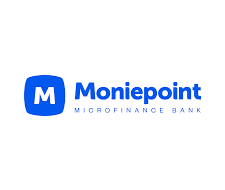| COUNTRY | MSME CONTRIBUTION TO GDP (2024) |
|---|---|
| South Africa | 34% |
| Egypt | 43% |
| Algeria | 15% |
| Nigeria | 46.3% |
| Ethiopia | 37% |
Small businesses keep Africa’s economy moving. In the table just above this paragraph, you can see the top five economies in Africa (by GDP) and how many percentage is contributed by MSMEs. Despite their immense contribution, many of them are still shut out from the tools they need to grow. Like finance, logistics, and digital access.
That’s changing. Slowly, but surely.
From Morocco to Zambia, tech startups and telecom operators are stepping up. They’re helping traders, shopkeepers, and entrepreneurs leap over old barriers. Whether it’s buying inventory, getting a small loan, or moving goods faster—there’s a digital solution in the works just around the corner.
Let’s look at how that shift is happening across the continent.
Chari: Helping Morocco’s Corner Shops Go Digital
In Morocco, Chari is helping small retailers take their business online—without the stress. It’s a simple app. Small businesses use it to order goods, manage stock, and handle payments. No more middlemen. No more guesswork.
Chari works with Orange Maroc to bring mobile financial services into the mix. It also has an exclusive logistics deal with Dislog Group, so deliveries are fast and reliable.
Over 20,000 shops already use Chari to an impactful effect. More time saved. Better cash flow. Less hassle. It’s a perfect example of tech that meets people where they are.
Camtel: Banking the Unbanked in Cameroon
Camtel, Cameroon’s state-run telecom company, has big plans for 2025. They’re launched mobile financial services, targeting Cameroonian residents without bank accounts. This puts them in direct competition with MTN and Orange, who already dominate mobile money in the country. But Camtel has a secret weapon—government backing.
Mobile money use in Cameroon jumped from 29.9% in 2017 to 42.7% in 2022. That momentum is strong. And with the right tech, Camtel could bring even more people into the digital economy. Still, they’ve got work to do. Winning trust. Expanding their agent network. Keeping fees low. That’s what will make or break them.
Airtel Money: Quick Credit for Zambian Hustlers
In Zambia, Airtel Money teamed up with Natsave to launch a product called Fikiliza. It’s basically an overdraft. Users can borrow small amounts straight from their phones. Perfect for traders who need quick cash for stock or transport.
Over half of all retail payments in Zambia now happen via mobile money. So adding instant credit to the mix? That’s a game changer. Airtel is also working with Mastercard and the Zambia Industrial and Commercial Bank to build out more digital services—from payments to internet bundles for small businesses.
Tappi + M-PESA: Powering Kenya’s Digital Hustle
In Kenya, Tappi and M-PESA for Business are teaming up to help MSMEs (micro, small and medium-sized enterprises) grow online. Tappi’s tools are built for the basics—creating a digital storefront, sending bulk messages, chatting with customers on WhatsApp.
It’s not flashy. But it works.
Over 650,000 MSMEs are in their sights. And by plugging into M-PESA’s payment system, Tappi helps these businesses collect money, pay vendors, and stay organised—all in one place.
“It’s not flashy. But it works.”
A Big Shift, Still in Motion
Across Africa, the message is clear: tech is giving small businesses a fighting chance. Chari. Camtel. Airtel. Tappi. These players are making things easier—whether that means access to credit, faster logistics, or just being able to sell online.
But it’s not all smooth sailing. Infrastructure is patchy. Internet is expensive. Regulation can be slow. To keep the momentum, collaboration is key. Fintechs. Telcos. Governments. Everyone has a role to play.
Because when small businesses grow, the whole continent wins.







One reply on “From Chari to Camtel: How Tech Is Opening Doors for Africa’s Small Businesses”
[…] 6,000 Nigerian vendors have earned a combined ₦71 billion ($42 million) since Glovo launched in the country in 2021. […]